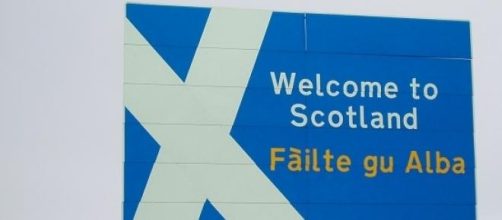Firstly, what do I mean by "counter factual history"? Counterfactual history is a speculative, hypothetical history, the history of "what if". So, an example would be to write a history of Britain if Germany and won World War II. Mostly, counterfactual history is a rather pointless exercise, and just crazy speculation. However, it can occasionally raise odd and interesting questions. So here's an example, how would the British Media e.g. the BBC have reported the awful events in Glasgow just before Christmas, when an out-of-control bin lorry killed 6 people, if Scotland was an independent country?
It is not meant to detract from the terrible and traumatic events a couple of days ago in Glasgow, but if Scotland was no longer part of the UK, how such an event would be reported by the British media results in some curious speculation. This event, understandably, led the news headlines on the BBC and was front page news on most of the newspapers. This is because Scotland IS part of the UK. But if Scotland was not part of the UK, how would the tragic incident of the out-of-control bin lorry have been reported by the BBC and in the UK media? Plausibly, it would not have been headline, front-page news. If that out-of-control bin lorry had killed 6 people in Munich or Barcelona or New York, it would have had minimal coverage in the UK media.
When the debate about Scottish independence was running, very little mention was made of how the UK media would have reported on Scottish affairs such as this one.
And, on an even more twisted and surreal note, what if one of the six had not been from Scotland, but from the new UK, sans Scotland? If Scotland was independent, but one of the people killed had been from England, Wales or Northern Ireland this would have once again changed how the UK media e.g. the BBC would have reported the story.
The counter factual history of "what if" Scotland was independent raises some interesting questions about the UK media would have responded to tragedies in Scotland.

